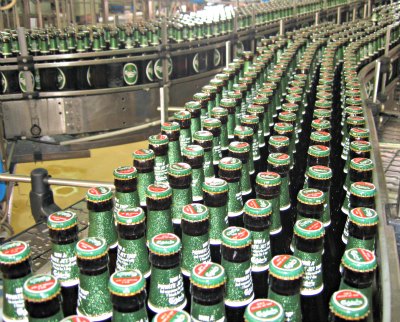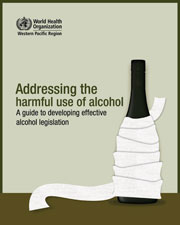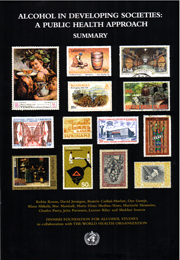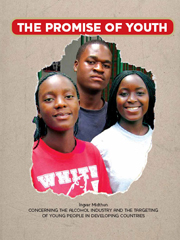
Drinks industry supplanting government role in Sub-Saharan Africa

The multinational drinks industry has made attempts to take control over alcohol policy formulation in a number of African countries.
A recent comparison of proposed national alcohol policies in Lesotho, Malawi, Uganda, and Botswana, now published in the scientific journal Addiction, shows that the drinks industry has assumed a significant and detrimental role in designing national alcohol policies in Sub-Saharan Africa. The policy drafts point to the alcohol industry’s preferred version of a national alcohol policy, which includes letting the industry regulate its own marketing activities.
In a study published in the January issue of Addiction, the authors Øystein Bakke and Dag Endal found that that alcohol policy documents from the four African countries were almost identical, and were likely based on a single source document that reflects alcohol industry interests. That source document originates from a series of alcohol policy initiatives in Sub-Saharan countries sponsored by multinational brewer SABMiller and the International Center on Alcohol Policies (ICAP), an alcohol industry-funded organisation.
The proposed national alcohol policies emphasise the economic benefits of the alcohol trade and the positive health impacts from alcohol consumption. Three of the drafts cite “self-regulation by the alcohol beverage industry as the most suitable way to manage marketing and promotions.” All four proposed policies prescribe “active participation of all levels of the beverage alcohol industry as a key partner in the policy formulation and implementation process.”
It is well known that the multinational alcohol producers consider developing countries as their new emerging markets. The characteristics of many countries in Africa, Asia and Latin-America make them promising for future profits from alcohol sale: Low alcohol consumption as a point of departure, economic growth and a growing middle class with increasing spending power.
- These are countries with a high proportion of children and youth in the population, comments FORUT’s Secretary General, Morten Lønstad. - In economic terms this means large potential consumer groups without any established consumption patterns or brand loyalties. Marketing efforts are used on a large scale to conquer these new markets in Africa and Asia. We also see an increasing political activity by the drinks industry, not the least in Sub-Saharan Africa. With a hand on the steering wheel in alcohol policy formulation the industry aims at preventing active interventions by governments to regulate markets and reduce alcohol consumption, says Morten Lønstad in FORUT.
When approached for comment, SABMiller said that workshops which took place prior to the policies being drafted included significant discussion about population-based measures and references to relevant World Health Organisation (WHO) sponsored research. However, the draft policies contain few of the best-practice policy recommendations developed by independent researchers working on behalf of the WHO. They also fail to address alcohol’s role in key development issues such as HIV/AIDS, gender-based violence, child rights, and social and economic deprivation.
The authors are specialized in alcohol and drugs as a development issue and working for FORUT, a Norwegian development NGO. They observe that the timing of the policy initiative suggests that it was spurred by the 2005 WHO alcohol initiative, and may represent an attempt to establish policies in Africa before WHO recommendations have a chance to influence their content.
Authors Bakke and Endal state: “Few, if any, would accept Philip Morris as the designer of the tobacco policy for a national government. The alcohol industry’s current policy proposals in several Southern African states can hardly be viewed any differently.”
The article in Addiction can be downloaded here in html version. A pdf version of the article is available at the same address.
Addiction is a monthly international scientific journal publishing more than 2000 pages every year. Owned by the Society for the Study of Addiction, it has been in continuous publication since 1884. Addiction is the top journal in the field of substance abuse and is number one in the 2008 ISI Journal Citation Reports © Ranking in the Substance Abuse Category.
Addiction publishes peer-reviewed research reports on alcohol, illicit drugs and tobacco, bringing together research conducted within many different disciplines, as well as editorials and other debate pieces.
Related articles
![]()
![]()
Developed with CustomPublish CMS by Nettinfo AS




